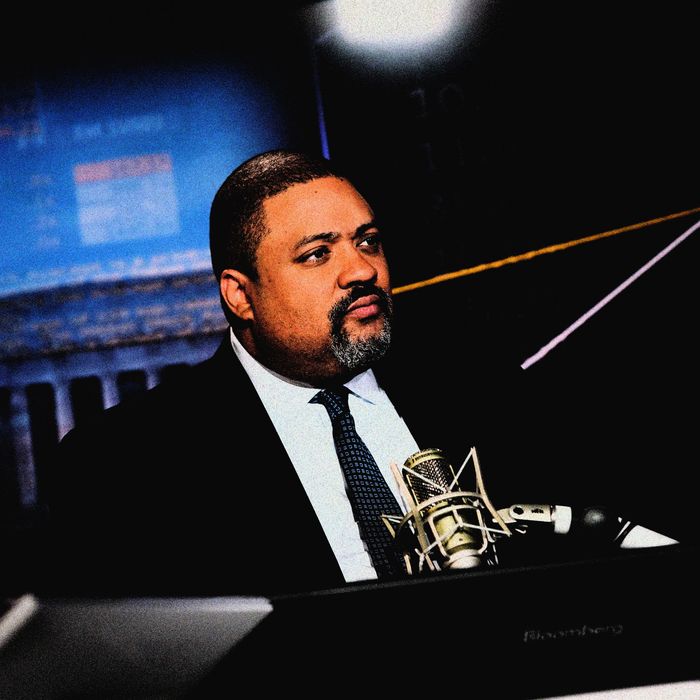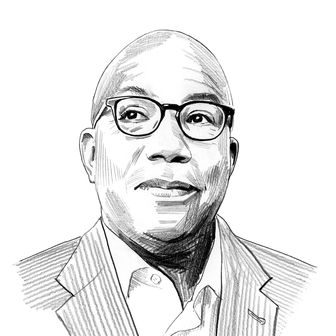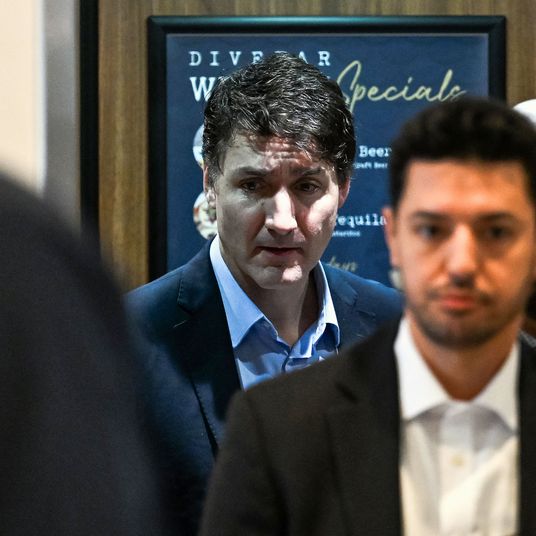
In the end, it was Manhattan’s plodding and plainspoken district attorney, Alvin Bragg, who proved the pundits wrong and delivered what all the big-talking power brokers could not: the criminal conviction of ex-president Donald Trump for the corrupt and illegal business practices that helped him win the 2016 race for president.
Bragg does not swagger into a room the way so many New York lawyers and politicians do. He does not preen, pose, shout, or boast. Even when traveling with an armed security detail, he tends to arrive quietly, with the friendly, open, and approachable style of a Sunday-school teacher, which Bragg has been for years.
It is typical for New York’s men of power to huddle in dark bars and boozy back rooms, swapping gossip, cutting deals, and sipping booze. You’re more likely to find Bragg in Harlem’s Abyssinian Baptist Church chatting about values, scripture, and how to make one’s way in the world with honesty and integrity. That alone makes him a different kind of fish in the shark tank of New York politics, which is stocked with bullies, boasters, bluster, and bullshit.
“This type of white-collar prosecution is core to what we do at the Manhattan district attorney’s office,” Bragg said after the conviction, repeating almost word for word what he’d said last April after Trump’s indictment and arrest. He was telling the truth: An investigation by NBC News showed that during Bragg’s first 15 months as DA, the office charged 166 felony counts for falsifying business records against 34 different people or corporations. As Bragg put it: “While this defendant may be unlike any other in American history, we arrived at this trial, and ultimately today at this verdict, in the same manner as every other case that comes through the courtroom doors — by following the facts and the law, and doing so without fear or favor.”
Fear and favor have been floating around People v. Trump from the start. The defendant himself, a former president of the United States who instigated the January 6 riot at the Capitol, publicly predicted that “death and destruction” would be the result of his being tried on criminal charges by Bragg. That didn’t happen, even when Trump posted the word PROTEST on social media and only a handful of people turned out. But Bragg did receive at least 89 death threats, including a note that said “Alvin — I’ll kill you,” which came with a package containing a suspicious white powder. Another ominous note read: “Remember we are everywhere and we have guns.”
In addition to dodging pro-Trump death threats, Bragg had to fend off attacks from men like Carey Dunne and Mark Pomerantz, two seasoned prosecutors brought in as special assistant district attorneys by Bragg’s predecessor, Cy Vance. Dunne and Pomerantz quit the DA’s office when, shortly after taking office, Bragg refused to bring sweeping racketeering charges against the Trump Organization.
“I believe that your decision not to prosecute Donald Trump now, and on the existing record, is misguided and completely contrary to the public interest. I therefore cannot continue in my current position,” Pomerantz wrote in a resignation letter. “I have worked too hard as a lawyer, and for too long, now to become a passive participant in what I believe to be a grave failure of justice.” Pomerantz went on to write a self-aggrandizing book attacking Bragg and disparaging the case against Trump as “the legal equivalent of a plane crash” due to “pilot error.”
In legal terms, many attorneys, including my friend Elie Honig, were bothered by Bragg’s use of New York’s clunky two-step law that makes it a felony to file false business records. Trump has been convicted of using false records — disguising his hush-money payments as a “legal fee” paid to his fixer/lawyer Michael Cohen — with the intent of concealing or advancing additional crimes. The quirk under New York law is that those additional crimes do not need to be proved or even specified. We don’t know whether the jurors believed Trump intended to violate campaign finance laws, tax laws, or some other statute.
The legal objections were accompanied by complaints from the pundit class that condemned Bragg for bringing a case that they called trivial or a distraction; the critics included Jonathan Chait, Peggy Noonan, Richard Hasen, and Van Jones. The main complaint seemed to be that falsifying business records to cover up hush-money payments to a porn star was small potatoes compared to sweeping charges of election fraud in Georgia or the mishandling of top-secret documents in Florida.
“The players in the drama aren’t people of import who stand for big things, they’re not fate-of-the-republic people, they don’t have any size. They’re tacky lowlifes doing tacky lowlife things,” Noonan wrote in The Wall Street Journal. “The case involves a questionable legal theory that depends on the testimony of Michael Cohen, who is half-mad in his own right.”
Fair enough. But Ron Kuby, a well-known left-leaning attorney, pointed out in the Daily News that the tackiness of the witnesses and the complexity of the law do not constitute a valid defense. “It is true that the application of these laws has never been used to criminalize attempted campaign-finance violations, but that is because most candidates for president keep better books,” Kuby wrote earlier this year. “It is no more novel than arresting a presidential candidate for DWI; it has never happened before but the law is unambiguous.”
That sounds about right to me: If Trump or any other candidate was charged with driving while intoxicated, few people would say the matter should be ignored. Bragg, operating at the steady, methodical pace of the courts, stood up for the principle that using business records to hide additional crimes should not be ignored or dismissed for Trump or anybody else. And he convinced a jury, beyond a reasonable doubt, that the former president violated the law.
Bragg now gets the last laugh against his critics in the legal profession. Pomerantz got a book contract and made money; Bragg got a conviction and made history. And politically, he has made more of a dent in Trump’s attempted comeback than any of the louder, flashier Democrats that frequent the cable-news shows, liberal think tanks, and the big-donor speaking circuit. It almost reads like the kind of lesson from scripture that gets taught in Sunday school: that sometimes, the race is not to the swift, nor the battle to the strong.
More on the trial and verdict
- Why Michael Cohen Still Misses Donald Trump
- What It Was Like to Sketch the Trump Trial
- What the Polls Are Saying After Trump’s Conviction






























